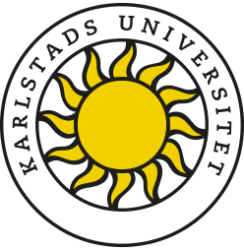Marco Berton, senior lecturer in Spanish
The adjective “sophisticated” is often associated with the idea of something advanced or complicated. As far as vocabulary is concerned, sophistication generally refers to the proportion of uncommon words in a given language sample (Read, 2000: 204), and is calculated by comparing it to an existing frequency list of the target language. Furthermore, when it comes to writing in a second language, a sophisticated lexicon is considered desirable, i.e., becoming proficient in a language also implies development in lexical sophistication. It therefore can be considered a good indicator of learners’ lexical proficiency which, in turn, is a part of their overall proficiency. Sophistication is arguably one of the most investigated features of what is commonly referred to as lexical richness, a construct that has mainly been investigated in L2 English. Our study (Berton and Sánchez, 2023), published in the volume Current Perspectives in Spanish Lexical Development, focuses on lexical sophistication in Spanish, a much less investigated language compared to English. It aims to discover what factors have an impact on lexical sophistication in Spanish as a foreign language when it comes to written production. Besides, being that task-based language teaching is the dominant approach in modern language pedagogy, the role of the type of pedagogic task is investigated. This is aimed at providing valuable information to teachers as to what type of task would possibly result in a higher use of low-frequency words.
It is plausible to hypothesise that the lexical sophistication in a text might depend on the number of words known by the writer. In this line, it seems worth reflecting on what knowing a word actually means. Word knowledge has been defined in different ways, including, for instance, the existence of passive vocabulary and active vocabulary (Nattinger, 1988), that is, the words a speaker understands and those that they can actively produce when needed, as when performing a vocabulary test, for example. Apart from passive and active vocabulary knowledge, a third construct named ‘vocabulary use’ refers to the words deployed in free production. Previous research has shown that, perhaps unsurprisingly, only a portion of the words known passively by a learner are actually available to them actively in vocabulary tests. Moreover, no significant correlation was found between passive vocabulary knowledge and lexical sophistication in free writing in English as a foreign language (Laufer, 1998).
Furthermore, it seemed intriguing to investigate if any effect of passive vocabulary knowledge on lexical sophistication would interact with the type of task at hand (i.e., the written activity that is assigned, as describing a picture or retelling a story in the target language). Different pedagogic task types are considered inherently more or less complex, as they require different mental processes to be completed (Brown et al., 1984). In our study, the participants performed two written tasks, a narrative and a decision-making one, since the latter is considered to be more complex than the former. 62 students were recruited from four Swedish universities, most of them being in the first term of their university studies in Spanish. They were native speakers of Swedish, even if four of them were bilingual in Swedish and another language and four were trilingual. Potential candidates with Spanish or any other Romance language as their additional L1 were excluded to prevent linguistic similarities across languages from biasing the results.
The results from the texts they wrote when performing the pedagogic tasks clearly showed no effect of passive vocabulary knowledge on the lexical sophistication of the participants, but a clear effect of task type. This latter effect did not seem to be mediated by passive vocabulary knowledge, as it was significant regardless the learners’ passive vocabulary knowledge. Since previous studies had already showed that differences in lexical sophistication are to be found only when major differences in passive vocabulary exist (e.g., Laufer and Paribakht, 1998), in a relatively homogeneous group as the one investigated in our study, differences in passive vocabulary knowledge were probably not big enough to translate into differences in lexical sophistication in free writing. However, a decision-making task seems to elicit a significantly higher proportion of sophisticated words in comparison to a narrative task. In this case, it is plausible that the inherent characteristics of an argumentative text, in which the writer is supposed to take position, speculate and provide arguments, intrinsically calls for a more sophisticated vocabulary. We hope that these results will underline the importance of informing teachers’ task selection and task sequencing in the foreign language classroom by raising consciousness about what outcome is to be expected if learners perform a specific task type. More specifically, teachers might decide to vary the selection of task types since they seem to prompt different degrees of lexical sophistication. Getting learners to use low-frequency words in their writing might help them to stably include them in their repertoire and therefore have beneficial effects on their future production. However, some caution is needed, as task complexity should only be increased when learners’ vocabulary is sufficiently developed to carry out more complex tasks effectively. Otherwise, there is a risk of negatively affect their learning process and motivation.
References
Berton, Marco & Laura Sánchez. 2023. Effects of passive vocabulary knowledge and task type on lexical sophistication in L2 Spanish writing. In Irene Checa-García and Laura Marqués-Pascual (eds.) Current perspectives in Spanish lexical development, pp. 161–186. Boston: De Gruyter Mouton.
Brown, Gillian, Anne Anderson, Richard Shilcock, & George Yule. 1984. Teaching talk: Strategies for production and assessment. Cambridge: Cambridge University Press.
Laufer, Batia. 1998. The development of passive and active vocabulary in second language: Same or different? Applied Linguistics 19(2). 255–271.
Lufer, Batia & Sima Paribakht. 1998. The relationship between passive and active vocabularies: Effects of language learning context. Language Learning 48(3). 365–391.
Nattinger, James. 1988. Some current trends in vocabulary teaching. In Ronald Carter & Michael McCarthy (eds.), Vocabulary and language teaching, pp. 62–82. London: Longman.
Read, John. 2000. Assessing vocabulary. Cambridge: Cambridge University Press.

